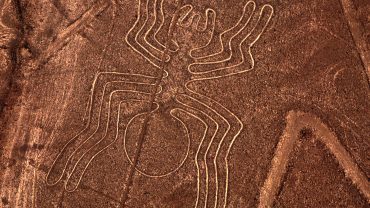The disappearance of Agatha Christie has baffled the world for almost a century. This perplexing episode occurred at the height of her literary success, following the publication of her sixth novel, The Murder of Roger Ackroyd, which had cemented her reputation as a master of the whodunnit genre and was subsequently voted the best crime novel ever written. However, her personal life was in turmoil, as she grappled with the recent loss of her mother and the devastating news of her husband’s infidelity.
On 3 December 1926, Agatha Christie went missing from her house in Berkshire, only to resurface eleven days later, almost two hundred miles away, in North Yorkshire. She claimed she had no recollection of where she’d been or what she’d done.
So what happened in the events leading up to the day Agatha Christie vanished? Where did she go? Let’s follow the clues that have long bamboozled her biographers and perplexed her peers, in an attempt to uncover the truth about the disappearance of Agatha Christie.
Who Was Agatha Christie?

The Orient Express (Credit: Photos.com via Getty Images)
Born in Torquay in 1890, Agatha Christie is the world’s best-selling novelist, selling over two billion books. Her prolific career spanned almost six decades, during which she wrote sixty-six detective novels, fourteen short story collections, and the world’s longest-running play, The Mousetrap. Christie’s iconic characters, Hercule Poirot and Miss Marple, have become household names, with her most famous books including Murder on the Orient Express, And Then There Were None, and Death on the Nile. Under the pseudonym Mary Westmacott, she also wrote six novels between 1934 and 1956.
She is one of, if not the, most translated individual authors in the world. The Mousetrap has been running uninterrupted (save for a short hiatus due to the COVID-19 pandemic) in London since 1952, and in addition to hundreds of literary accolades from all over the world, Agatha Christie was made a Dame by HM Queen Elizabeth II for contributions to literature.
However, despite the meticulous, almost forensic documentation of her life and career, including letters, diaries, and interviews that have woven together a comprehensive tapestry of her personal history, there’s one extraordinary chapter of her life that defies explanation and remains shrouded in enigma. The fateful eleven days in December 1926 when Agatha Christie went missing, disappearing without trace.
For Agatha Christie, missing days was a plot twist worthy of her own novels. But why did she disappear? Where did she go? Was it a publicity stunt to promote her new book? Did she intend to frame her philandering husband for murder? Or was she, as most now suspect, suffering from extreme stress due to the loss of her mother, the impending breakdown of her marriage, and the stress brought about by the pressure she felt to keep delivering successful books?
The Events Leading Up to Agatha Christie’s Disappearance

The Old Cataract Hotel in Egypt from Death on the Nile (Credit: Harald WENZEL-ORF via Getty Images)
By the mid-1920s, her literary career was flourishing – she had become a cherished household name – yet her personal life had fallen into a deep crisis. Few could have predicted how profoundly this private turmoil would coincide with her soaring professional success.
In April 1926, Christie’s mother, Clara, passed away. Then, in August of that same year, her husband of twelve years, Archie Christie, asked for a divorce after falling in love with a woman named Nancy Neele. According to accounts, on the evening of December 3rd, Archie and Agatha argued and Archie then left to spend the weekend with friends, including Nancy Neele.
Later that night, at around 9:45 pm, after reportedly kissing her daughter Rosalind goodbye and leaving her in the care of the maid, Agatha Christie went missing.
The Abandoned Car

Newlands Corner, where Christie's car was found (Credit: Wayne Gerard Trotman / 500px via Getty Images)
The next morning – December 4th – her Morris Cowley was discovered abandoned at Newlands Corner in Surrey, near a chalk quarry. Reports suggest the headlights were still on, and a suitcase of her clothes remained inside. According to one account, a letter addressed to her secretary stated she was heading to Yorkshire.
Agatha Christie’s Missing Days

Sherlock Holmes creator Sir Arthur Conan Doyle (Credit: mikroman6 via Getty Images)
Agatha Christie’s disappearance sparked an unprecedented search as well as a media frenzy. The story quickly became headline news, and even featured on the front page of The New York Times. In the days after Agatha Christie went missing, both her husband Archie, and his lover Nancy Neele, were under suspicion, but those enquiries came to nothing.
The scale of the search operation was staggering. Over 1,000 police officers and thousands of volunteers scoured the local area. For the first time in British history, aeroplanes were used in a missing person search. The case captivated the nation and attracted such widespread attention that the Home Secretary, William Joynson-Hicks, personally intervened, pressuring the police to make faster progress in the strange case of the disappearance of Agatha Christie.
Adding to the public intrigue, a newspaper offered a reward of £100 for information leading to Agatha Christie’s whereabouts, equivalent to around £8,000 in 2025.
Notable figures were drawn to the mystery, including Sir Arthur Conan Doyle, creator of Sherlock Holmes, and Dorothy L. Sayers, author of the Lord Peter Wimsey series. Yet despite the massive scale of the search efforts and the intense public interest, Christie would remain missing for a total of eleven days, leaving behind a mystery that continues to baffle people to this day.
The Mysterious Affair at The Swan

Agatha Christie resurfaced in Harrogate in Yorkshire (Credit: mikeuk via Getty Images)
On 14th December, Christie was found at the Swan Hydropathic Hotel (now known as the Old Swan Hotel) in Harrogate, Yorkshire. She checked in under the name Mrs Teresa Neele (the surname of her estranged husband’s lover), stating she was from Cape Town in South Africa. It’s believed she was recognised by one of the hotel staff who called the police. The police then contacted Archie Christie.
This part of the story of Agatha Christie’s disappearance is somewhat murky, but it was said that Archie sat in the hotel’s dining room, watched his wife enter, sit down, and read the front page of a newspaper with her own face splashed over the front. When he finally went to talk to her, witnesses said she looked at him with genuine confusion, barely recognising him.
The next day, she was taken to her sister’s home at Abney Hall in Cheadle, Greater Manchester, where she stayed ‘in guarded hall, gates locked, telephone cut off, and callers turned away.’
Christie herself didn’t mention the disappearance in her autobiography, and the truth has never been clearly established, but there are many theories as to why she vanished so abruptly.
Why Agatha Christie Went Missing: The Theories

Did she leave clues to her disappearance in her car? (Credit: dan_chippendale via Getty Images)
Over the years, numerous theories have been put forward to explain the famous eleven day disappearance of Agatha Christie. They range from the measured and medically grounded to ideas bordering on the bizarre. Here are the prevailing theories, from the plausible to the farfetched.
Psychological Issues
One frequently discussed explanation is that she experienced an intense period of mental distress brought on by significant stress and grief. In the months before her disappearance, she lost her mother, and her husband requested a divorce – two major emotional strains. These factors may have contributed to what some describe as a fugue state, a rare dissociative condition characterised by confusion, disrupted identity or memory, and unexpected travel away from usual surroundings. Christie later noted that she had little recollection of what took place during this period.
Revenge
Another proposed explanation suggested that Agatha Christie’s disappearance was deliberately orchestrated, perhaps to retaliate against her husband for his affair. This theory suggested she may have hoped to alarm him or force him to reflect on his actions. Given her narrative skill, some speculated that she chose a method guaranteed to create a dramatic impact – leaving behind her car, personal belongings, and a public sense of foreboding. Whether this was a calculated act or an impulsive decision made in the heat of emotional turmoil remains a point of much debate.
A Publicity Stunt
A more cynical – and far less supported – theory holds that Agatha Christie vanished to generate publicity for her work. Having published several successful novels already, she may have looked to elevate her name even further by creating a real-life mystery. Indeed it was believed that she was under immense pressure – both personally, and from her publisher – to keep producing successful novels. Christie was already very popular, and such a stunt would have been fraught with legal and reputational risks. In addition, the distress caused to her family, friends, and the public seems at odds with what her personal writings reveal about her character.
A Frame For Murder
Taking the revenge angle to its extreme, one theory posits that the disappearance of Agatha Christie was staged to frame Archie for her supposed murder. Though this lines up neatly with the kind of revenge plot found in her novels, there’s little concrete evidence to back it up beyond the intrigue of the situation. It’s similarly suggested by some that she may have been testing out a plot twist for a new book.
Farfetched Conspiracies & Speculations
As with any high-profile unsolved puzzle, rumours of secret missions, kidnappings, or even government plots have surfaced over the decades. Some insisted that Christie was involved with clandestine espionage work, others proposed she may have been the victim of kidnapping or foul play but somehow escaped. None of these claims ever gained serious traction and they mainly highlighted how her disappearance so perfectly mirrored the tone of her crime fiction and therefore sparked endless flights of fancy.
The Plot Thickens…

Dial E for Enigma... (Credit: FPG via Getty Images)
Agatha Christie’s disappearance remains an enigma. She never explained what happened during those eleven days. Ultimately, her own statements – while extremely limited – supported the idea of an amnesia-like episode induced by overwhelming personal turmoil. While we may never have definitive proof of her mental or emotional state, most biographers agree that the stress from her mother’s death and her husband’s affair likely drove her, consciously or subconsciously, to retreat from her life.
Yet opinions remain divided. Even now, with the world’s best-known detective writer at the centre of this real-life mystery, the precise motive as to why Agatha Christie vanished remains elusive.












